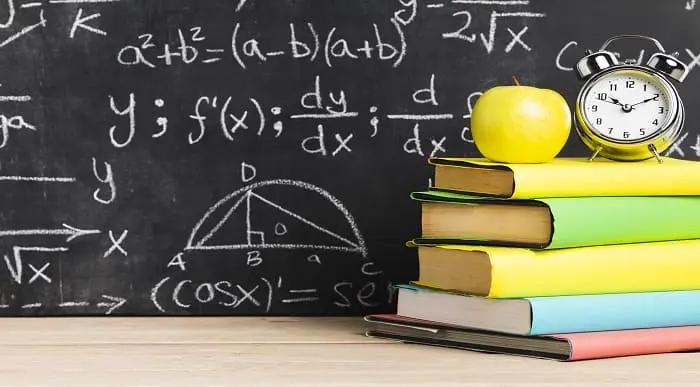Functional Skills
What is Functional Skills Qualification? All You Need to Know About This
Functional Skills qualifications have become a household term for the UK citizens as more and more places are emerging where you will need them. As such more people are searching the internet with the question “What is functional skills?” and how could they develop these skills. That’s what this blog is all about. Whether this is the first time that you’ve heard of the term “Functional Skills” or you’re looking to develop them, this blog will help you all the same.
So let’s get right into it.
Table of Content
- What is Functional Skills?
- Why are these skills important for jobs?
- Functional Skills types
- What is Functional Skills English?
- What is Functional Skills Maths?
- What is Functional Skills Information and Communication Technology (ICT)?
- Levels of Functional skills
- Functional Skills equivalent grade
- How are Functional Skills assessed?
- How to improve Functional Skills?
- FAQs
- Conclusion
- What to Read Next:
What is Functional Skills?
“Functional skills are practical skills in English, mathematics and information and communication technology (ICT) that allow individuals to operate confidently, effectively and independently in life and work.”
Department for Education and Skills
The Department for Education and Skills has said it plenty in their excerpt above. Functional Skills are fundamental English, Maths and ICT (Information and Communication Technology) skills that people use in their personal and professional life on a regular basis; the keyword being “on a regular basis”. Most of the aspects of these skills are so fundamental that they’ll help you in your personal life. So you can imagine their impact on your professional life as well. This is also the very reason the governments of the present and the past have highly valued these skills. They encouraged people to learn them and developed various means to make them easily accessible to people.
As these skills are ‘functional’, you can apply your core skills to real-life situations once you learn them.
Most training and education programmes include English and Maths as essential subjects. Diplomas, Foundation Learning Programmes and Apprenticeships- all these require you to have Functional Skills in case you don’t have your General Certificate of Secondary Education (GCSE).
Why are these skills important for jobs?
Functional Skills qualifications are highly valued by employers. They aim to enhance your proficiency in numeracy and literacy. In most jobs, they are applicable. Nobody wants a rookie in their office and then spend money and resources training them only to discover that they severely lack in their basic skills. As Functional Skills are based around skills needed for everyday life, it is normal to expect that an employee will already have developed them by the time they are ready to work in an office. Plus, it is also normal to assume that an employee will have the flexibility to problem-solving using these skills.
So whether you’re working or learning or doing both, Functional Skills are vital for you to be an asset to your organisation and the society as a whole. Both your performance and productivity depend highly on these basic skills and how efficiently you have learned to deploy them whenever necessary.
That’s where Functional Skills qualifications come in. It becomes easier to gauge someone’s practical skills at a certain level easily with these qualifications.
Additionally, if you want to pursue further studies, Functional Skills are basically an essential part of that venture.
For instance, Level 2 Functional Skills are becoming more and more acceptable to Universities. But, it depends on the type of Higher Education course you want to do. They take less time to study than the General Certificate of Secondary Education (GCSE).
However, you do have to remember that some professions do require GCSE’s in English and Maths.
All of these qualifications will develop your ability to function competently in the workplace and achieve your goals.
Functional Skills types
So, as I have stated earlier, the aim of Functional Skills is to enhance your proficiency in numeracy and literacy. You’ll develop a strong background in reading and writing, numeracy and the use of information and telecommunication technologies. To that end, you’ll have to learn three main types of functional skills:
- English
- Mathematics
- Information and Communication Technology (ICT)

Functional Skills Maths Level 2
- Accredited Courses
- Tutor Support Included
- 3 Installment Plan at checkout
- 14 Days Money Back Guarantee
What is Functional Skills English?
Communication in personal and work situations are vastly different. Effective organisational operations depend solely on effective communication between employees. If that communication breaks down or is lacking in some places, it creates a chain of ripples across the whole organisation. What happens in the end is that the work of the people whose functionality depend highly on information transfer, suffer to a great extent.
Even if English is your native language, you may not be aware of certain discrepancies in your communication methods.
So, Functional Skills qualification in English aims to provide the appropriate training to students to communicate in both personal and work situations effectively.
Everything will be checked under certain criteria, from your punctuation and spelling to correct grammar rules in written communication. What are these criteria? Well, the goal here is to measure whether you have reached the level of communicative competency expected from you. That’s exactly what these criteria dictate.
The other thing that is also measured here is whether you can effectively deploy your communication skills without using computer programmes or dictionaries.
As you advance through your skill level, you’ll switch from basic stuff like spelling and grammar to things like your presentation skills.
Functional Skills English can be broken down into three distinctive parts:
-
Reading
When you independently understand and decode written language texts that have a meaningful context, that is defined as reading.
In the Reading component of the Functional Skills assessment, you can take the help of technology such as screen readers. However, it has to meet the standard of learners reading independently. You can also take help from a human scribe to record your written answers. But, the scribe isn’t allowed to read to you as that violates the standard of independent reading.
-
Writing
When you independently construct a piece of written text in a purposeful context, that is considered writing.
You can use technology like voice recognition if it helps you. However, unlike the reading assessment, you cannot use a human scribe here. It violates the standard of independent writing.
-
Speaking, listening and communicating
Speaking, Listening and Communicating refers to all types of non-written communication methods. This type of communication occurs face-to-face or virtually over a phone call and/or video conference.
To ensure that the test does not create any barriers for people who have a speech or hearing impairment, each individual word of the component can be interpreted in its own way to make it more inclusive. Learners can be assessed for this component using British Sign Language or augmentative speech equipment.
Since a Functional Skills programme is ‘fundamental’ in nature, it’s okay if the learner has no prior qualification or knowledge. It isn’t expected of them.
Top Courses of this Category
What is Functional Skills Maths?
Mathematical concepts such as doing arithmetic without a calculator or visualising simple mathematical data etc, are the goal of Functional Skills Maths. Learning “Problem-solving” in this manner will help you to make effective decisions with numbers and perform numerical reasoning tasks within real-life situations.
Depending on the assessment and your current level of qualification, you may be allowed to use a calculator. However, initially, on a basic level, you will learn to do fundamental calculations without a calculator.
The mathematics section of the Functional Skills covers four separate elements:
- Data handling,
- Numbers,
- Measurement,
- Shapes
Data handling
You’ll learn to read numerical information from lists. Then sorting and classifying objects using a single criterion will also be taught here.
For example, classifying students under 18 and over 18 under different banners and then sorting them accordingly.
You’ll also learn to handle data like simple charts and diagrams like tally charts or block graphs.
Numbers
You’ll be taught to handle different types of numbers like whole numbers (1, 2, 3, 4, ..and so on). You’ll also learn the operational symbols like Arithmetic Operators and their function in maths.
Measurement & shapes
Measurement and shape refer to things like recognising coins and writing them with their correct symbol ($ or £). The same thing is true of other metrics like length, width, height, weight and capacity. Identifying common shapes like a circle, a triangle or a 3D shape like a cube or a cylinder is also included here. Positional vocabulary that describes where you are, like left, right or east, west etc, is another part of the math programme.
Then comes metrics relating to time. Things like the number of days in a week, months and seasons in a year and their sequence or reading a digital or analogue clock will be in your test.
Once you have completed the learning material, you can register for the online exam in person.
What is Functional Skills Information and Communication Technology (ICT)?
In today’s day and age, you can’t work effectively, by any stretch of the word, without having sound Information and Communication Technology (ICT) knowledge. But that doesn’t mean you have to learn to code the next Facebook. Sound ICT knowledge refers to the skills to use technology for work, study and life.
So, what are the examples of ICT skills?
Using a computer for basic stuff, browsing the internet, and various electronic communication methods like email, SMS, or Messenger software like Facebook Messenger, Microsoft Teams, Skype or Zoom- all these fall under what we’re referring to as sound ICT knowledge.
Now, “using a computer for basic stuff” is a very broad term, understandably. But there is no reason to fear, even if you’re not technologically sound enough. All you’ll have to learn is some common word processing, spreadsheet and presentation software like the Microsoft Office suite (Word, Excel & Powerpoint, for example) or the Google suite (Google Docs, Google Sheets & Google Slides, for example). Once you learn one, the others will become very easy to grasp for you as all of these software are very similar to each other.
They do have their depths. But for the majority of us, learning the basics is more than enough. These basics will hardly take a week for someone to learn.
So, what are the goals here?
The goal here is to enable us to do research, interpret results and solve problems using technology. However, the research side of things is mostly done using the help of the internet.
Levels of Functional skills
There are three levels of functional skills:
- Entry-level
- Entry-level 1
- Entry-level 2
- Entry-level 3
- Level 2
- Level 3
They replaced a set of older qualifications called “key skills”. Functional Skills qualifications in English and Maths are free to anyone who doesn’t already have either a GCSE grade 4 (C grade), or a Level 2 in the specific subject. What this means is that the Government will fund your English and Maths studies. Regardless of your age or whether or not you are at work, until you achieve either of these grades, the government will continue funding your studies.
Functional Skills equivalent grade
The entry-level, as you can see, is also divided into three distinctive levels. Each level builds on the contents of the previous level.
As an approximate comparison,
All the Entry-levels are below the General Certificate of Secondary Education (GCSE) level.
Level 1 Functional Skills is the same as getting a GCSE grade D-G (2017 grade 1-3).
Level 2 Functional Skills is comparable to getting a GCSE grade A*-C (2017 grade 9-4).
How are Functional Skills assessed?
Pass or fail. These are the only grades in Functional Skills assessments. There are no coursework or portfolio elements for these qualifications. The result is based solely on exam papers.
The Entry-Level examinations are all paper-based. You’ll be assessed internally and your exams will be moderated by a centre.
Level 1 and Level 2 can be taken online or as a paper exam. Online exams are taken on demand. Paper assessments, however, must be taken during weeks set by the awarding body. Whichever way you choose for your assessment, it will ultimately be carried out externally, unlike the Entry-Level examinations, which are carried out internally.
How to improve Functional Skills?
Here are some quick tips to improve your Functional Skills.
-
Practice
The most effective way to develop Functional Skills is to use them at every chance in your life. It will give you a strong base to build upon.
-
Study
Studies are more relevant in the context of your Functional Skills assessment exams. You need to internalise what you learn, and hence your study is also important.
-
Use of a supportive trainer
The internet is a sea of resources. If you don’t want to waste time behind a trainer who teaches offline for some as basic as Functional Skills, then look for online trainers. Training centres like Lead Academy are famous for their Functional Skills course programmes. The biggest upside here is that you can learn at your own pace in the comfort of your home.
Take help from them so you can develop these skills faster and deploy yourself in the job market much sooner.
FAQs
What qualification is Functional Skills?
The Entry-levels are below the GCSE (General Certificate of Secondary Education ) level.
Level 1 Functional Skills is equivalent to GCSE grade D-G (2017 grade 1-3).
Level 2 Functional Skills is equivalent to GCSE grade A*-C (2017 grade 9-4).
How are Functional Skills assessed?
Functional Skills assessments are designed to assess practical skills, knowledge, and understanding in English, mathematics, and ICT. Functional skills are assessed through both written tests and practical assessments.
I am a student. Why do I need Functional Skills?
Most definitely. Especially if you skip your GCSE or need to resit your GCSE because you failed, then you’ll have to do your Functional Skills first for you to be eligible to sit for it again.
What do individuals with an English or maths Functional Skills qualification have to offer?
It means that you can be sure that they can effectively carry out basic problem solving all by themselves. They can also communicate effectively. You don’t have to fear that the messages may get “lost in translation”, even among native English speakers.
How can centres support learners?
Centres like Lead Academy can provide learners quality study materials so that zero effort is wasted looking for them. Instead, the learners can focus solely on their skill development and invest all of their time there.
Why are Functional Skills important?
Functional Skills are important because they help individuals to develop the skills they need to succeed in both their academic and professional life.
Can I get a job with Functional Skills?
Most jobs will expect Functional Skills from you right from the get go. What other qualifications they may require depends solely on the nature of the job and your employer.
What are Functional Skills examples?
Examples of Functional Skills include communication skills, such as writing, reading and speaking; mathematical skills, such as numeracy and problem-solving; information technology skills, such as the use of computers and software applications; practical skills like the ability to follow instructions.
What is the difference between Functional Skills and GCSE?
The primary difference between Functional Skills and GCSE is that Functional Skills are recognised as online qualifications, whereas GCSE courses are typically taught in a classroom setting.
Do jobs accept Functional Skills?
Almost all jobs now require Functional Skills as a core part of the overall competency of a candidate. So, they not only ‘accept’ it, they actually regard these skills as a must-have.
On-Demand Accredited Courses
Analyze data quickly and easily with a powerful PHP library! All datasets included where beginners welcome!
Conclusion
So, what is Functional Skills? It is basically a way to measure if a person can handle much more complex sets of data or tasks. They are also the building blocks of many of our learning ventures. It is no wonder why they are valued so much both by the government and the employers alike. The curriculum for Functional Skills Maths is set by the government. If you choose to take help from a trainer, it doesn’t really matter which trainer you end up with as long as the syllabus is concerned. They will always follow the same curriculum. All you need to do is choose a great training centre that will help you develop your skills effectively as quickly as possible.
What to Read Next:
- What is NVQ Level 3 Equivalent to – Qualification and Equivalent Degree
- Triangles ABC and CDE are Mathematically Similar?
- How to Become Better at Math?
- Functional Skills English Level 2 Writing Sample Answers
- Functional Skills ICT Level 1, 2 Past Papers and Answers – Edexcel, NCFE, AQA, City & Guilds
- Functional Skills Pass Rates – Comprehensive Analysis Update
- What is Language Features Functional Skills?













